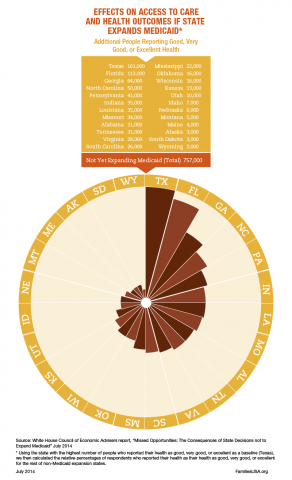
See the original blog post at the FamiliesUSA blog by Dee Mahan and Andrea Callow.
***************
24 states have chosen not to accept federal funds that would provide affordable health insurance to more low-income residents by expanding Medicaid. A recent report by the White House Council of Economic Advisers, Missed Opportunities: The Consequences of State Decisions not to Expand Medicaid, outlines health and economic opportunities that residents in non-Medicaid expansion states are missing. Based on that data, this graphic shows how residents of each of those 24 states would benefit from gains in health, economic growth, and job creation if their state chose to expand Medicaid.
Better Health
Expanding Medicaid will mean that more state residents will have access to health care, get recommended preventive health services, and get the care they need when they are sick. In each of the 24 states, the Council of Economic Advisers estimated that more residents would report being in good or excellent health if the state chose to expand Medicaid.
Federal Dollars
Because the federal government pays virtually all of the costs of expanding Medicaid, states that choose to expand Medicaid receive an injection of federal dollars into their economies. The states that have already expanded Medicaid are receiving those funds right now. Leaving that money on the table is a missed opportunity for state economic growth.
Economic Growth
Gross domestic product (GDP) is the total annual value of goods and services produced in a state. Growing GDP is one of the primary indicators of economic growth. The injection of federal dollars into states that expand Medicaid creates economic growth in several ways:
- More residents will have insurance and be able to pay for the health care they need, increasing demand for medical services.
- With insurance to cover health care costs, residents have more money to pay for other goods and services, helping the economy to grow broadly.
- With more people insured, the cost of providing care that was previously not paid for (uncompensated care) falls. That saves money for everyone who provides or pays for uncompensated care—directly or indirectly—like hospitals; city, county and state governments; employers who provide health insurance; and state taxpayers.
Jobs
States that don’t expand Medicaid miss an opportunity for economic growth. That also means a missed opportunity for new jobs. If each of the 24 states had expanded Medicaid in 2014, all states would see significant job growth relative to the population of their states in 2016.

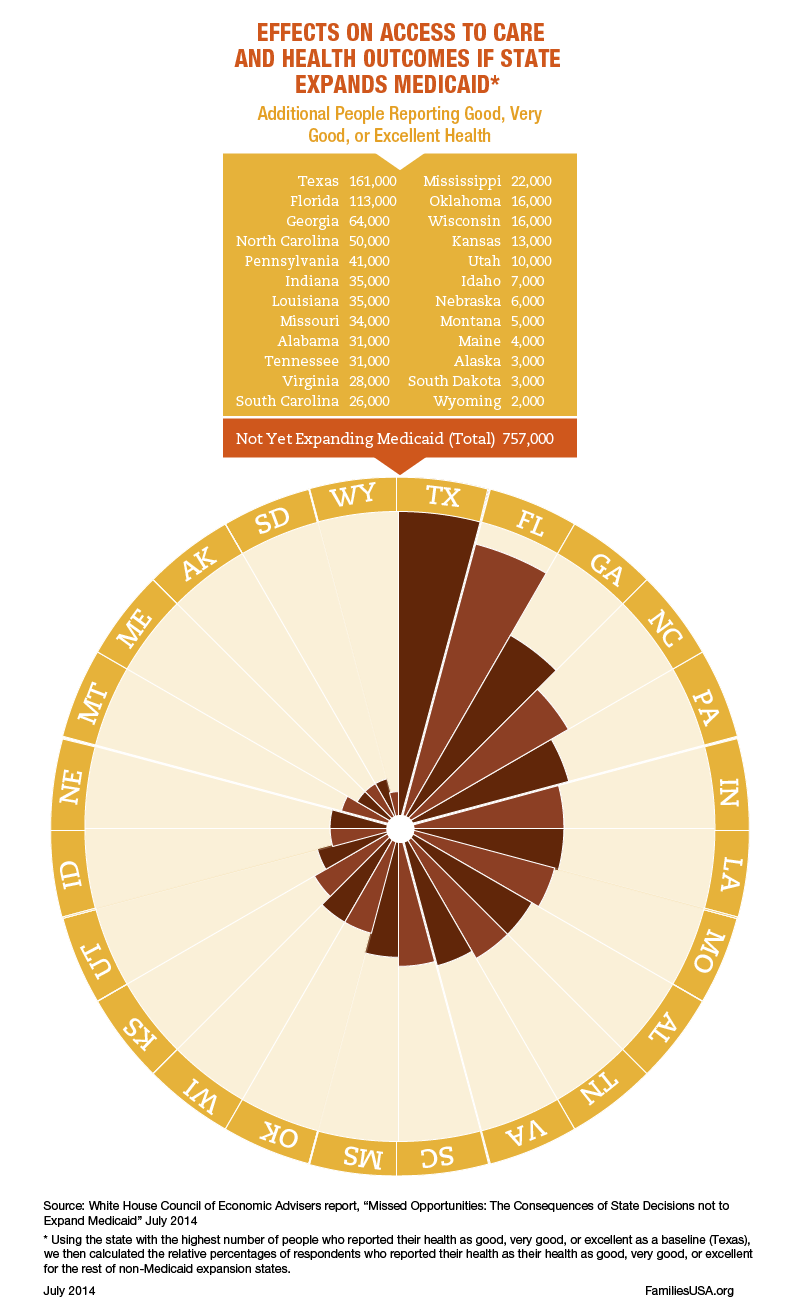
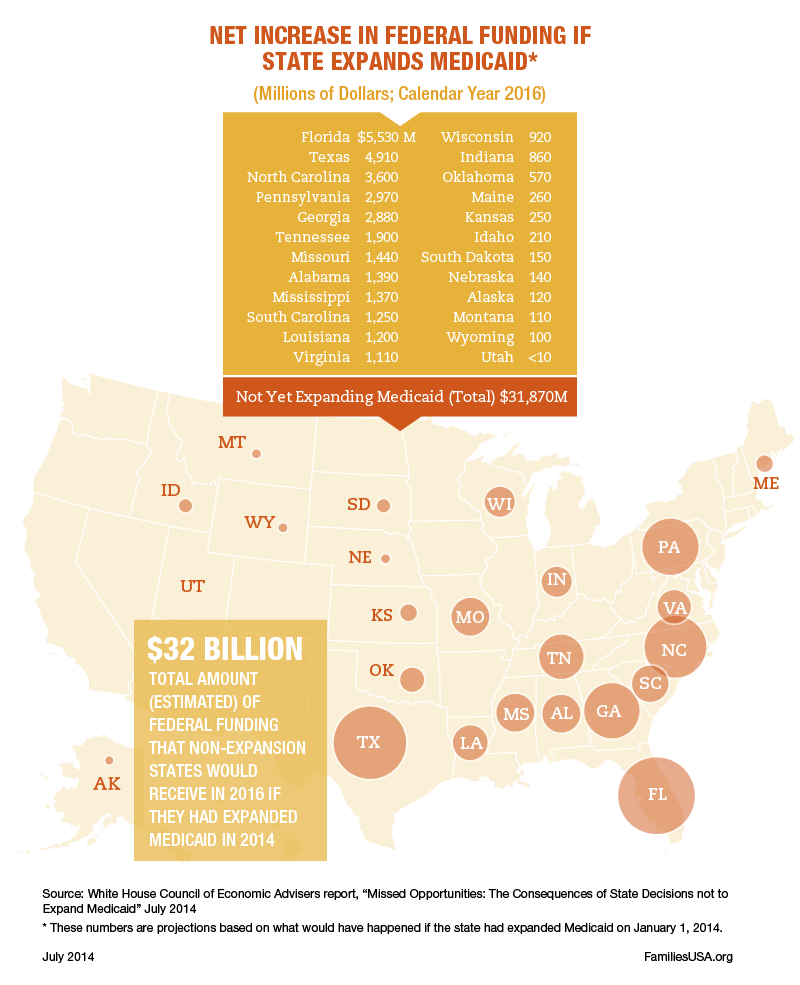
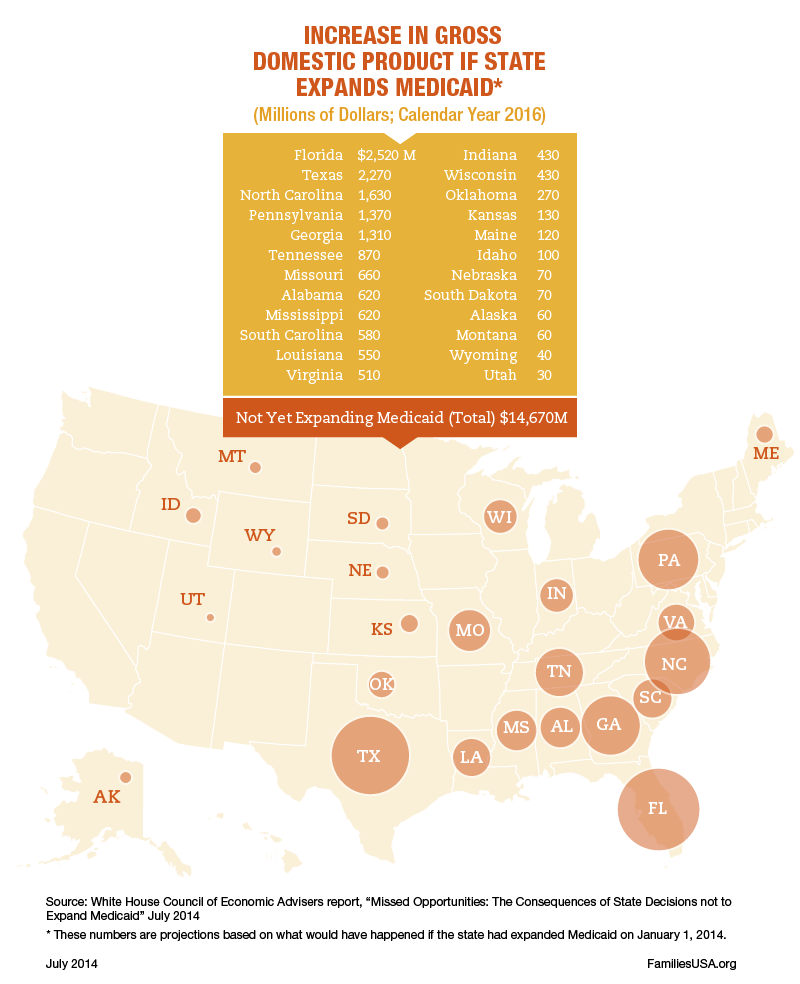
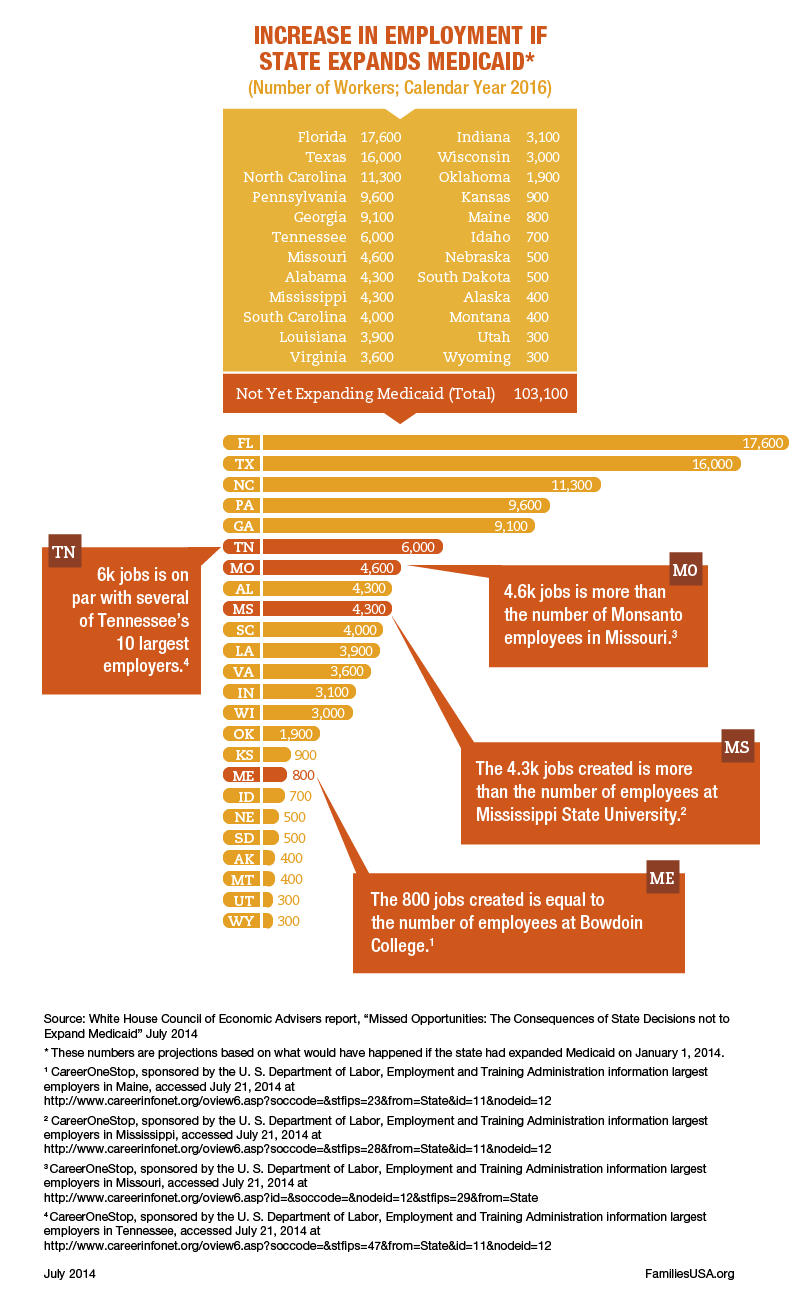


The views and opinions expressed in this post are those of the author(s) and do not necessarily reflect those of MomsRising.org.
MomsRising.org strongly encourages our readers to post comments in response to blog posts. We value diversity of opinions and perspectives. Our goals for this space are to be educational, thought-provoking, and respectful. So we actively moderate comments and we reserve the right to edit or remove comments that undermine these goals. Thanks!